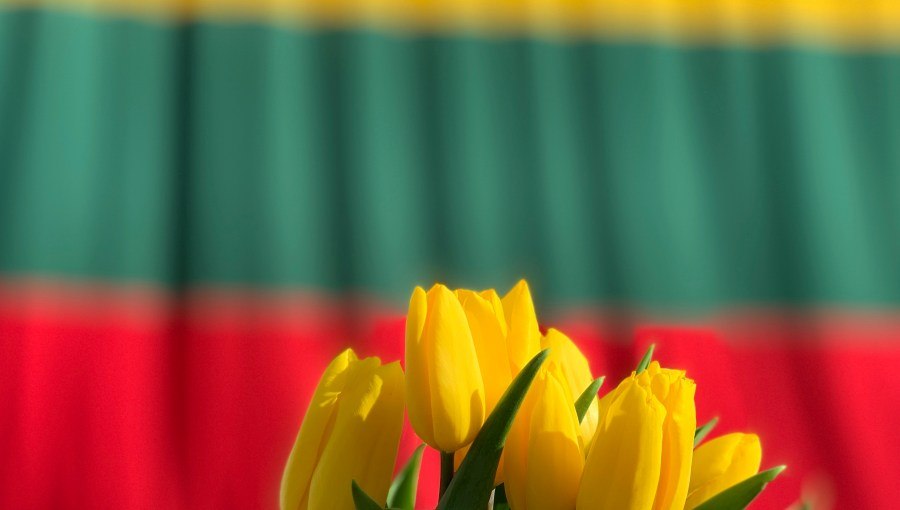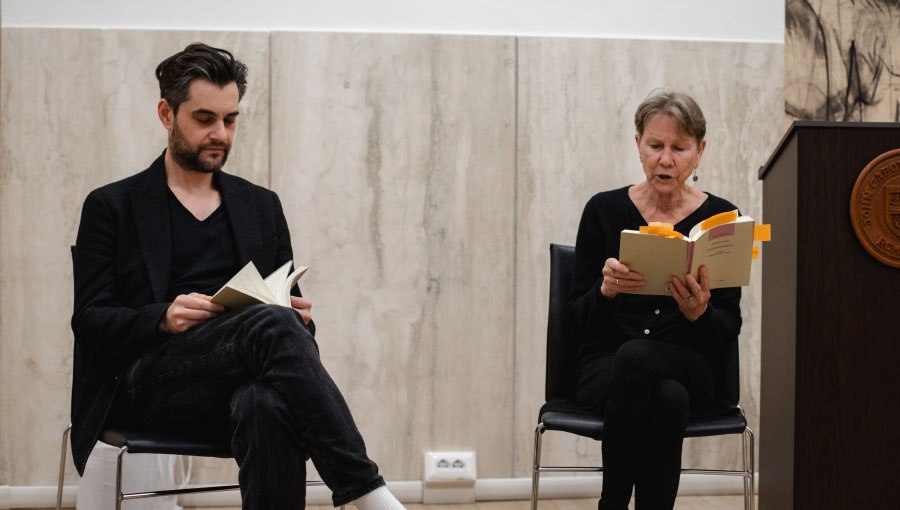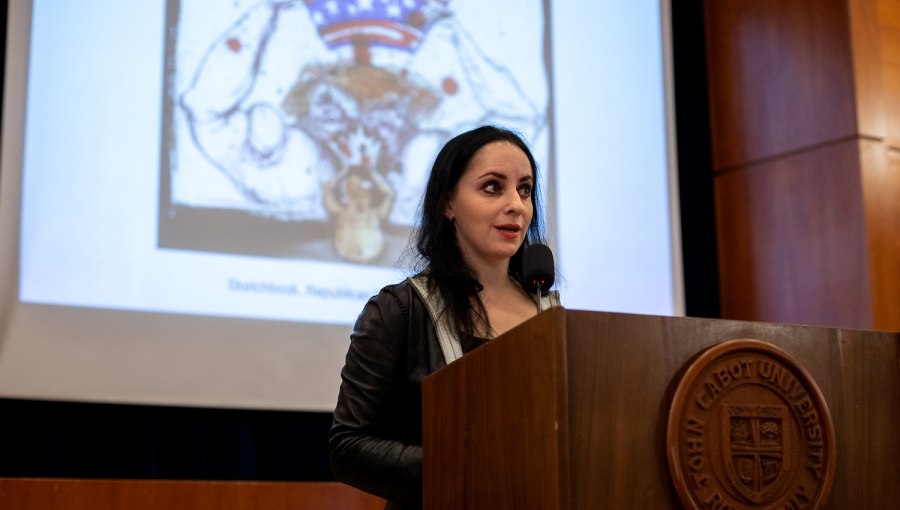International Women's Day at John Cabot University
On the occasion of International Women’s Day 2018, JCU’s Women’s Leadership Initiative (WLI) hosted a week-long series of events to celebrate the economic, political, and social achievements of women as well as discuss the many challenges that women face.
This year for the first time, all John Cabot faculty members were invited to join the International Women’s Day initiative by devoting at least 15 minutes of class time during this week to a topic related to women. In addition to the many professors who structure their entire courses within a gender perspective, numerous other classes will be dealing with a variety of important topics, such as the gender pay gap, reproductive freedom, female patronage, women and technology, the glass ceiling, and many more.
The Week’s opening panel discussion was “Media Through the Lens of Gender” held in Aula Magna. Guest speakers were Barbie Latza Nadeau from The Daily Beast, author of Roadmap to Hell: Sex, Drugs, and Guns on the Mafia Coast, and Francesca Caferri, from the Italian daily La Repubblica, author of Non Chiamatemi Straniero. Women’s Leadership Initiative President Marina Traylor acted as moderator. The speakers noted that there is no #metoo movement in Italy and that women are not ready to support each other in a country where patriarchy is still prominent. They also expressed concern over recent crimes committed against women, the public reaction that followed, and addressed the need to put those crimes in a separate group – femminicidio or femicide, which refers to the killing of a woman or girl, in particular by a man and on account of her gender. The audience agreed with the speakers on the need to empower young women for the sake of generations to come. In the second part of the discussion, the speakers talked about gender boundaries in journalism and how there are still topics that are not supposed to be covered by female journalists. Ms. Caferri discussed the condition of women in the Middle East and how the debate around Muslim women wearing a veil hinders a serious discussion on the rights of women in the region. Upon being asked how young men can support their female friends in their fight for equality, Ms. Nadeau mentioned the insightful New York Times article “How to raise a feminist son.”
March 6th was dedicated to the discussion of the #metoo movement. The Women’s Leadership Initiative board presented on the movement that was started by Tarana Burke in 2006 and took a new turn in October 2017 after the New York Times published an article on film producer Harvey Weinstein. The audience joined the discussion by sharing their stories and offering new solutions to the question of women living in a patriarchal world.
On March 7th, the student community was invited to join the JCU faculty to discuss gender inclusion in the classroom. Professors shared their views on how to encourage female students to speak up and why gender bias in academia is still prevalent. Everyone agreed that change is long overdue and time is up for gender discrimination.
The week’s events culminated in a lunchtime celebration on March 8th, International Women’s Day, with food provided by Hummustown a social enterprise by JCU Alumna Shaza Saker, and ASCS Onlus – Programma Humilitas, and Gustamundo, partners of JCU Service Learning. President Franco Pavoncello stated that Women’s Day is not only for women but for everybody because “where women have no hope, there is no hope for anybody.” Student Health and Wellbeing Services Coordinator Alyssa Civitello read a piece by Ev’Yan Whitney where she celebrated the “toomuchness” of women and highlighted self-love as the most powerful trait a woman can possess. International Affairs major Francesca Giuliano shared an autobiographical piece on what it was like growing up female in Sicily. Communications Major Federica Bocco read a poem by Reyna Biddy called What a Relief to Be a Woman. The poem encourages women to take a stand for themselves and underlined that women don’t always “want to be pretty,” but they want to be powerful. English Composition professor and Writing Center Coordinator Tara Keenan talked about “empowering men to see women differently” because not talking about men in this context means that “we are having the wrong conversation.” She read a poem called Ten Responses to the Phrase ‘Man Up’ by Guante. Student Isha Mandal read her own poem Rape Culture which pointed out that women are often held responsible for being rape victims. English Literature Student Adriana DeNoble presented her own piece that drew attention to and protested against ethnic stereotypes regarding women such as Latinas being “nothing but curves and pursed lips” and white girls being “marriage material.” Chief of Staff Kathryne Fedele and Executive Assistant to the Vice President and Dean of Academics Anna Colella read the poem “Because We’re Women.” Written by Australian poet Joyce Stevens in 1975, the poem is still relevant in illustrating why feminism is still a necessity.
Later in the day, WLI invited students, faculty, and staff to join the Women’s March in Rome. Participants walked together from Piazza Vittorio to Piazza Venezia to bring attention to gender discrimination, female empowerment and the struggles women endure in everyday life.








